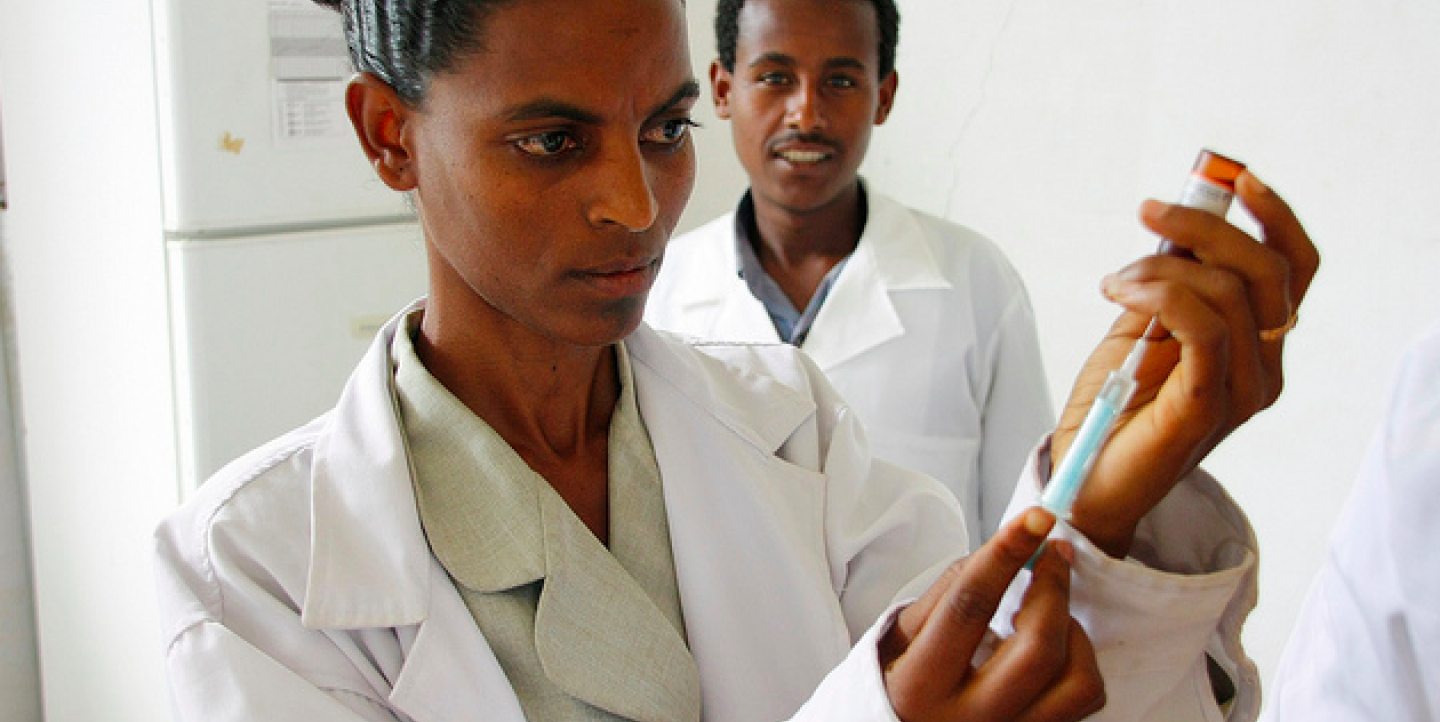In Ethiopia, where journalists usually vie to cover the economy, crime and entertainment, a new collective of 100 journalists and communicators is shining a spotlight on an often-neglected beat: health.
Ethiopia’s first organization of health journalists, the Addis Ababa Health Journalists Initiative, formed last month with the goal of boosting the quality and breadth of health coverage in the country. It will create resources, training and online discussion forums so health journalists and health experts can better connect and learn from one another.
Radio journalist and media trainer Elsabet Samuel who helped organize the collective as part of her Knight International Journalism Fellowship, talked with IJNet about why better health reporting is so critical in Ethiopia and her hopes for the new association.
IJNet: Why did you see the need to form the Addis Ababa Health Journalists Initiative?
Elsabet Samuel: The media in Ethiopia enable society to make informed decisions that shape their lives. However, health-related facts can be distorted when journalists lack basic health reporting skills. Therefore, I saw a need to help journalists disseminate quality, accurate and practical health information to the public in order to improve the lives of people in Ethiopia. This can only be effectively done through consecutive trainings for journalists.
IJNet: What problems does the association aim to overcome?
ES: First, a lack of quality health reporting and specialization. I believe the formation of the association will help to encourage standards in health reporting that will be nurtured through trainings and mentorship. Most of the time journalists [don’t seek to] specialize in health reporting because they are usually thinking that working on different beats like economy, crime and entertainment could earn them more fame and money. The formation of the Initiative will encourage more journalists to cover health issues.
Also, lack of access to policy documents, decision-makers and expertise. The Initiative will create opportunities for members to access and share policy documents, expert analysis and decision-makers' opinions so that they will cover more health policy-related issues that are mostly neglected by the media. The association will also assist journalists [with sharing] information and personal experiences among themselves on how to start to cover neglected health issues that are becoming prevalent in the country, such as mental health and multi-drug resistant tuberculosis.
IJNet: How will you meet your goals?
ES: Three main ways:
• Building professional capacity of members through trainings and forums to share experiences.
• Providing members with resources and online discussion forums to facilitate dialogue, promote participatory and joint learning, and share experiences among health journalists and health experts.
• Encouraging journalists to report on crucial health issues.
Image: Preparing a measles vaccine in Ethiopia. Photo courtesy of DFID - UK Department for International Development, under a Creative Commons license.

